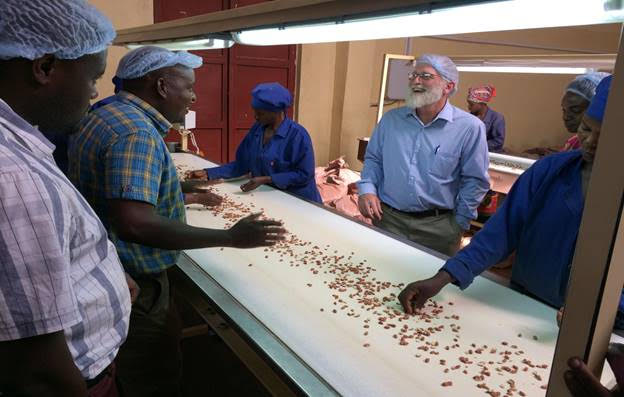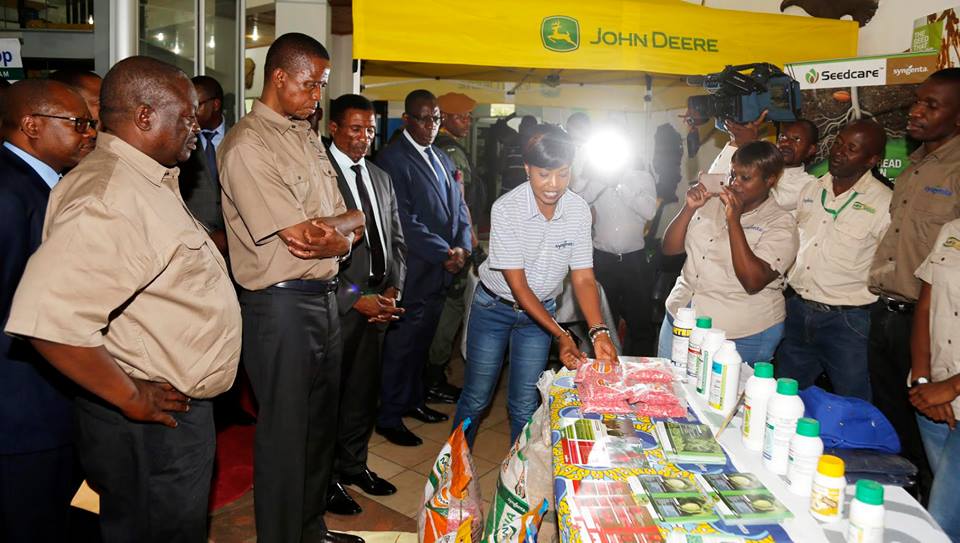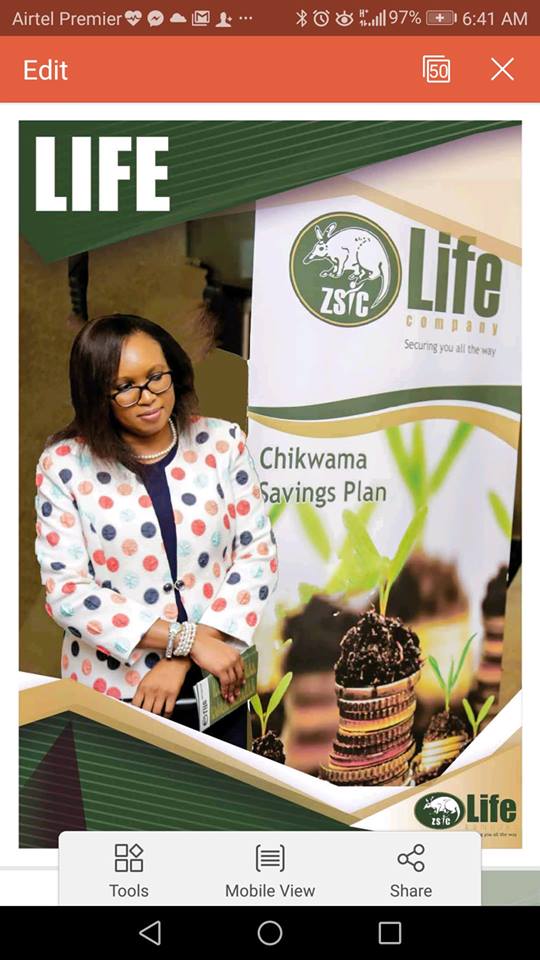U.S.-Zambia Research Partnership Offers Innovations for Small-Scale Farming
Notice: Undefined index: catFilterList in /home/zambi/public_html/wp-content/plugins/wp-likes/api.php on line 243

USAID Acting Mission Director Thomas Crubaugh learns about sorting of groundnuts after they are shelled during a tour of a Community Markets for Conservation (COMACO) factory. For the past six years, USAID has supported COMACO through the Better Life Alliance Project (2012-2017), Partnering for Innovation Project (2017-2018), and Africa RISING research. (Photo credit: USAID/Jeremy Boley)
By Sean McIntosh Public Affairs Officer
Phone: 357000
Tuesday October 23, 2018
Lusaka – Small-scale farmers in Zambia are now leveraging new techniques to boost harvests of maize, sweet potatoes, and groundnuts. This is the result of knowledge gained from a partnership between the Zambia Agricultural Research Institute (ZARI), international agricultural researchers, and the U.S. Agency for International Development’s (USAID) Africa RISING activity. Formerly known as Africa Research in Sustainable Intensification for the Next Generation, Africa RISING is a product of the U.S. government’s Feed the Future Initiative and Global Food Security Strategy.

Sean McIntosh Public Affairs Officer
With over $1.7 million invested in the project from October 2015 to September 2018, the Africa RISING activity used research and development to provide pathways out of hunger and poverty for small-scale farmers in Eastern Province. Implementing partners introduced more sustainable farming approaches to improve food, nutrition, and income security, particularly for women-led farming households. The activity also focused on conservation and sustainable utilization of natural resources, while identifying and implementing technologies to increase small-scale farmer agricultural productivity.
“The United States government, through USAID, is honored to be part of this process that is helping to shape the future not just of Zambia, but also of Africa as a whole,” said Acting USAID Country Director Thomas Crubaugh. “We believe that the innovations developed under Africa RISING can uplift communities and countries, and place them on a path where external assistance is no longer required.”
These innovations resulted from a collaboration between scientists at ZARI and the international community to improve agriculture in Zambia. Following research activities implemented by the International Crops Research Institute for the Semi-Arid Tropics in Malawi; the International Maize and Wheat Improvement Center in Zimbabwe; the International Potato Center in Malawi; and the International Institute of Tropical Agriculture in Nigeria, Africa RISING achieved many goals.

President Lungu with ZNFU 2018 with Zambia National Farmers’ Union (ZNFU) – Mr. Jervis Zimba, ZNFU Board and Trustees; Minister of Agriculture Hon. Michael Katambo MP; and Minister of Fisheries and Livestock, Hon. Kampamba Mulenga
The Africa RISING activity worked to encourage local solutions to Zambia’s needs and strengthened the capacity of ZARI to increase farm productivity through low-cost and improved technologies, including high-nutrient crops. The combined work of the activity’s partners identified more than 25 new technologies that have significantly increased the productivity of Zambia’s maize, groundnut, soybean, cassava, and cowpea value chains. USAID partners have produced Vitamin A-fortified orange maize and orange-fleshed sweet potato, new varieties of drought- and disease-tolerant groundnuts and soybeans, and many low-cost, efficient crop-production systems. Additionally, the Zambia Environmental Management Agency approved and registered the bio-pesticide “Aflasafe,” paving the way for greater commercialization of maize and groundnuts through more effective control of aflatoxins.

Christabel Michel Banda ZSIC Life MD at ZSIC life stand at the ongoing Agriculture & Commercial Show
About Feed the Future and the Global Food Security Strategy
Feed the Future began as a USAID program under the auspices of the U.S. government’s Global Food Security Initiative, which has now evolved into the Global Food Security Strategy. Feed the Future addresses the root causes of food insecurity to combat poverty, hunger, and malnutrition, thereby transforming lives, working hand-in-hand with partner countries to develop their agriculture sectors, which typically employ the bulk of the population, particular the poorest, in countries such as Zambia.
For more information about this press release, please contact the U.S. Embassy Zambia Press Office at ZambiaPress@state.gov.



















